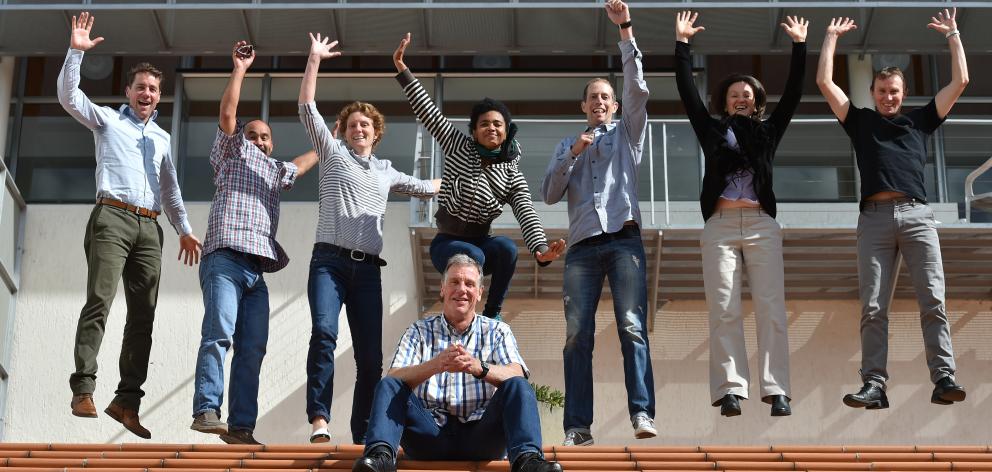
The School of Physical Education, Sport and Exercise Sciences was the top-ranked university department in New Zealand after placing seventh in the annual QS World University Rankings by subject.
The ranking in the subject area of sport and sport-related disciplines comes just over a week after staff in the department were offered voluntary redundancies ahead of a review which is likely to result in job cuts.
The school was not the only subject where Otago University excelled, with anatomy and physiology, dentistry, archaeology and development studies all making the top 50 and eight other subjects making the top 100.
The school's dean, Prof Douglas Booth, said its performance would ''really raise staff morale'' ahead of the review.
It would hopefully also boost student numbers, Prof Booth said.
He believed the school's international profile was a major contributor to its high ranking.
''So it doesn't really come as a surprise to me, because I've always known that our staff has been performing well above their weight.''
People who studied in the area went on to become teachers and were also increasingly becoming involved in the growing sport and physical education industry.
This included jobs in health promotion and working for national sports organisations.
An example of the research being carried out in the school included a collaboration with the Dunedin City Council and the Dunedin Secondary Schools Partnership on the numbers of pupils who walk and cycle to school.
This year was the first time sport and exercise sciences had been included in the rankings.
Asked if the rankings could affect the outcome of the review and potentially mean fewer job cuts, pro-vice-chancellor, sciences Prof Richard Barker said: ''The proposal for change ... is related to ensuring its operational efficiency rather than addressing its research and teaching excellence, which are clearly demonstrated by these rankings.
''Given that this subject area at Otago has had such a strong showing in this QS rankings exercise, it is clearly vital that the school remains financially viable so that it can continue to shine in this regard,'' Prof Barker said.
Academic deputy vice-chancellor Vernon Squire said the results were a pleasing acknowledgment of the depth of the university's teaching and research excellence across a range of disciplines.
''This assessment, which I understand involves consideration of over 4400 universities worldwide, is a welcome recognition of what we have achieved in our educational offerings so far across many areas,'' Prof Squire said.
The QS subject rankings were arrived at on the basis of a combination of factors including academic reputation, employer reputation and research citations.
University of Otago's performers
• Sport and sport-related disciplines: Seventh
• Anatomy and physiology: 24th
• Dentistry: 29th
• Archaeology: 40th
• Development Studies:44th
• Anthropology, Geography, History, Law, Medicine, Performing Arts, Psychology, and Education were also ranked in the top 100.
• A further nine subjects were ranked in the 101-150 band and another nine in the 151-200 band.
• In "faculty'' rankings, which aggregate a number of subjects, the university was 66th in the world for life sciences and medicine, 88th in the world for arts and humanities and 89th in the world for social sciences and management.
Advertisement
Comments
This reads like a repeat of what the Dept of History and Art History and English Dept have suffered recently. Success in Phys Ed or Humanities is not rewarded or, for that matter, often given much publicity, unlike Science and Health Studies. Workers at the coal face seem to suffer for poor upper level planning and lack of positive action by the so-called leaders of the University of Otago. How short-sighted of the manangment whose numbers seem to increase while good departments are pruned down.
What Professor Barker fails to mention is the inevitable impact his 'efficiency' drive has upon teaching and research excellence. Dunedin lawyers must be rubbing their hands, it would be interesting to know how much public money has been spent on legal costs.













